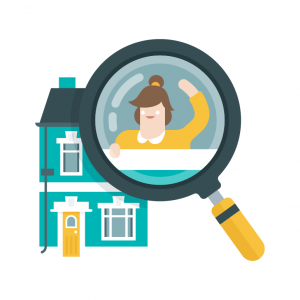Q&A…Buying a Home: Tips from an Estate Agent
Buying a home can be stressful, particularly if you’re a first-time buyer and unfamiliar with the long and complicated process. Tom, a London estate agent, explains some of the key steps, with tips to make the ride that bit smoother.

Role of an Estate Agent
What is the role of the estate agent in assisting a prospective buyer?
To give free knowledgable advice, to be honest and fill the buyer with confidence, because the journey can take time and might have issues.
Before starting to look for a house, what should a buyer take into consideration?
Financials need to be in place (mortgage, funds for deposit etc.).
Consider an area you like and focus on that, as you will be overwhelmed if you are looking in too many different areas.
At what point would a buyer register with a local estate agent?
As soon as you’re interested in a particular area, contact local estate agents to find out about the locality and discuss what you are looking for. That will help you understand what you can get for your budget, and build up a picture of which specific neighbourhoods would suit you, where to avoid etc.
Should you register with more than one estate agent?
Yes, as this will give you better coverage of the market.
What do estate agents’ fees cover?
Fees are only charged to sellers, not to buyers.
Fees cover all marketing of the house and broking of the deal.
Can an estate agent help with mortgages?
Once you have a deposit, the agent can offer advice on mortgages and recommend a broker.
HelloGrads comment: Note that if you are still paying off your student loan, it may affect the mortgage deal you get, because a lender will take into consideration all your current commitments, including student loan repayments. It’s always wise to shop around and do your own research on mortgage lenders, including banks, building societies and brokers.
Who sorts the legal aspects like contracts/conveyancing/surveys? Does the estate agent organise this or should buyers find their own people?
The agent can recommend local solicitors and surveyors they know, as they may work better with these people, but you can use your own. It’s a good idea to ask friends/family/locals for recommendations.
Starting the search
What questions might an estate agent ask clients that come in search of a property?
Do you have a deposit ready?
Is your mortgage approved?
Are you in rented accommodation at the moment or living at home?
Do you have a property to sell?
What are some key things to look out for when viewing a potential property?
Ask lots of questions at viewings before considering the property:
- How long has it been on the market?
- Why are the owners selling?
- What’s the seller’s position? Is there a chain? Have they found a property to buy? Do they need a quick sale? What sort of offer do you think they might accept?
- What are the neighbours like?
- Do you have any other interest in the property?
- Ask about anything that’s important to you e.g. proximity to transport links, parking, sun in the garden, is there a history of flooding from the nearby river, what is under construction down the road etc.
Visit at several different times of day, particularly if you are near a school, offices, site entrance or anything else that might affect traffic, noise levels, lighting in the area etc.

Making an offer
Do you have any tips for negotiating on the asking price?
Find out as much info as possible about the property and the seller’s position to then see if you can negotiate. Get along with the agent so you can talk to them on a good level to understand what you could offer. Mention any factors that make you an attractive buyer, like you don’t have a property to sell first, you can be totally flexible on completion dates and you already have a ‘mortgage agreed in principle’.
What’s the average time from putting an offer on a house, to completion?
How long is a piece of string really, it depends on both the seller’s position and the buyer’s position. If they are both chain-free then it can be as quick as 6 to 8 weeks, but it also depends on lenders and searches. The average time is a few months.
Next steps
If your offer is accepted, what happens next?
You finalise your financial arrangements (mortgage offer and deposit funds), get a survey of the property done, and your solicitor carries out the necessary legal searches and sorts out the contract. Once everything is complete and the buyer and seller are happy to proceed, you can exchange contracts.
Note different rules apply in Scotland .
Exchange of contracts
The buyer and seller sign and swap contracts and agree a completion date to finalise the transaction. At this point, the buyer pays a deposit and the agreement becomes legally binding. If either party pulls out after this, they would face penalties (e.g. you could lose your deposit).
Completion
This date is when the transaction is legally finalised: the money changes hands, the new owner gets the keys and can move in.
What should you do if the house sale falls through?
Unfortunately, this happens a lot for all sorts of reasons, so don’t get discouraged and just move on. But do find out why, and see if there might still be an opportunity for you to buy the property in the future (for instance, if the seller pulled out because their own purchase fell through, they might soon find another property and put their house back on the market).
Do you have any other tips for first time buyers?
Get your deposit sorted and then get out there and start looking. You will understand the market and what things are worth the faster you do this. Don’t be scared, its normal to be apprehensive, so seek advice from friends or family. Good luck!
Find out more:
Buying a Home: What You Need to Know
Home-buying process – steps to buying a new house or flat – Money Advice Service/Money Helper
